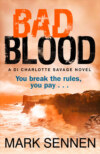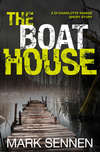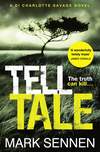Loe raamatut: «Best of British Crime 3 E-Book Bundle»
Best of British Crime 3 Book Bundle
Paul Finch, Mark Sennen and Neil White

Table of Contents
Title Page
Stalkers
Touch
Cold Kill
Copyright
About the Publisher
Stalkers

PAUL FINCH
Stalkers

Table of Contents
Title Page
Dedication
Prologue
Chapter 1
Chapter 2
Chapter 3
Chapter 4
Chapter 5
Chapter 6
Chapter 7
Chapter 8
Chapter 9
Chapter 10
Chapter 11
Chapter 12
Chapter 13
Chapter 14
Chapter 15
Chapter 16
Chapter 17
Chapter 18
Chapter 19
Chapter 20
Chapter 21
Chapter 22
Chapter 23
Chapter 24
Chapter 25
Chapter 26
Chapter 27
Chapter 28
Chapter 29
Chapter 30
Chapter 31
Chapter 32
Chapter 33
Chapter 34
Chapter 35
Chapter 36
Chapter 37
Chapter 38
Chapter 39
Chapter 40
Chapter 41
Chapter 42
Chapter 43
Chapter 44
Chapter 45
Chapter 46
Chapter 47
Chapter 48
Acknowledgments
Read on for an exclusive extract from Sacrifice
About the Author
For Mum and Dad, whose encouragement never flagged
Prologue
The night before, they met up one final time to go through the plan.
They were consummate professionals. Each one of them knew his role to the last. Nothing had been left to chance: they’d researched the target thoroughly; any possible glitch had been considered and accounted for. Timing would be all-important, but as they’d rehearsed exhaustively there were no real concerns. Of course, the target wouldn’t be keeping to a schedule, so there were potential problems there. But they’d be in full contact with each other throughout by phone, and one of the things experience had taught them was how to think on their feet and, if necessary, improvise. Another was patience. If the schedule slipped drastically, to the point where there might be genuine variables to deal with, they’d withdraw, regroup and move again on a later date.
It was always best to keep things safe and simple. But good planning was the whole thing: gathering intelligence, assimilating it and then striking at exactly the right moment with speed and practised precision. And in many ways that was its own reward. As job satisfaction went, there was nothing quite like it.
After they’d run things through a couple of times, they treated themselves to a drink; a bottle of thirty-year-old Glen Albyn bought with the proceeds of the last mission. And while they drank, they destroyed all the data they’d accumulated during the prep: written documentation, drawn plans, photographs, timetables, tapes containing audio information, memory sticks loaded with footage shot by mobile phones or digital cameras. They placed it all in a brazier, on top of logs and kindling, doused it with lighter-fluid and torched it.
On the off-chance something did go wrong and they had to start the whole process again – the trailing, the observing, the intelligence-gathering – they would do it without question or complaint. Proficiency was all; they didn’t believe in taking shortcuts. In any case, with minds as focused as theirs, much of the key detail would be retained in their memories. They’d only had to delay things once previously, and on that occasion the second run had been much easier than the first.
As they watched it all burn, the hot sparks spiralling into the night sky, they slapped each other’s shoulders and drank toasts: for good luck – which they wouldn’t need; and for the catch – which they’d enjoy as much as the chase. They’d almost finished the Glen Albyn, but if they woke up in the morning with muzzy heads, it wouldn’t matter: the mission was only due to commence late in the day. They’d be fine. They were on form, on top of their game, a well-oiled machine. And of course it would help that the target didn’t have an inkling and would get up with the alarm clock, prepared for nothing more than another routine day.
That was the way most women seemed to live. How often it was their undoing.
Chapter 1
There was something innately relaxing about Friday evenings in London.
They were especially pleasant in late August. As five o’clock came and went, and the minute hand progressed steadily around towards six, you could feel the city unwinding beneath the balmy, dust-filled sky. The chaos of its streets was as wild and noisy as ever – the rivers of traffic flowed and tooted, the sidewalks thronged with bustling pedestrians – yet the ‘grump’ was absent. People were still rushing, yes, but now they were rushing to get somewhere where they wanted to be, not because they were on a time-clock.
In the offices of Goldstein & Hoff, on the sixth floor of Branscombe Court in the heart of the capital’s glittering Square Mile, Louise Jennings felt exactly the same way. She had ten minutes’ worth of paperwork to finish, and then the weekend officially began – and how she was anticipating it. She was out riding on Saturday morning, and in the afternoon was shopping for a new outfit as they had a rotary club dinner that evening. Sunday would just be a nice, lazy day, which, if the weather reports were anything to go by, they could spend in the garden or on a drive into the Chilterns.
Louise was a secretary by trade, but that job-title might have been a little misleading. She was actually a ‘senior secretary’; she had several staff of her own, was ensconced for most of the working day in her private office, and answered directly to Mr Malcolm Forester, who was MD of Goldstein & Hoff’s Compliance department. She turned over a neat forty thousand pounds per annum, which wasn’t bad for an ex-secondary school girl from Burnt Oak, and was held in high esteem by most of the company’s employees, particularly the men – though this might have owed as much to her shapely thirty-year-old figure, long strawberry-blonde hair and pretty blue eyes as to her intellect. Not that Louise minded. She was spoken for – she’d been married to Alan for six years now, and had dated him for three years before that. But she enjoyed being attractive. It made her husband proud, and so long as other men restricted themselves to looking, she had no gripes. If she was honest, her looks were a weapon in her armoury. Few in the financial sector, of either sex, were what you’d call ‘reconstructed’. It was a patriarchal society, and though the potential was always there for women to wield great power, they still had to look and behave like women. When Louise had first been interviewed for a job with Goldstein & Hoff, she’d been under strict orders from Alan to make the best of herself – to wear a smart tight skirt, high heels, a clingy, low-cut blouse. It had got her the job, and had remained her official uniform ever since.
Okay, on one hand it might be a little demeaning to consider that you’d only advanced through life because you were gorgeous, but that was never the whole story. Louise was highly qualified, but so were numerous other women; in which case, anything that gave you an edge was to be embraced.
It was just after six when she got away, hurrying across the road to Mad Jack’s, where Simone, Nicola and Carly, her three underlings – all of whom had been released at the generous ‘Friday afternoon only’ time of four-thirty – would be waiting for her.
Mad Jack’s, a onetime gin palace dating from Dickens’s day, had been refurbished for the modern age, but still reeked of atmosphere. Behind its traditional wood and glass entrance was a dimly-lit interior, arranged on split-levels and filled wherever you looked with timber beams, hardwood panelling and exposed brickwork. As always at this time of the week, it was crowded to its outer doors with shouting, besuited revellers. The noise level was astonishing. Guffaws echoed from wall to wall; there was a clashing of glasses and a banging of tables and chairs on the solid oak floor. It could have been worse of course: Louise had started at Goldstein & Hoff before the smoking-ban had been introduced, and back in those days the place was fogged with cigar fumes.
The four girls made a little enclave for themselves in one of the far corners, and settled down. They ordered a salad each, though with a central order of chips accompanied by mayo and ketchup dips. Louise made sure to drink only a couple of Chardonnays with hers. It wasn’t just that she was the boss and therefore had a responsibility to behave with wisdom and decorum, but she had to drive some of the way home. Nevertheless, it was a part of the week that they all looked forward to; a time for the sort of rude quips that were strictly forbidden during company hours (at least, on Louise’s watch). Occasionally other colleagues would drag up stools and join them, men to drunkenly flirt or women to share tasty snippets they’d just picked up. At some point that evening it would assume the dimensions of a free-for-all. By seven-thirty, Carly was onto her sixth Southern Comfort and coke and Nicola was in a deep conversation with a handsome young chap from Securities. The ornately glazed doors crashed open as yet more City guys piled in. There were further multi-decibel greetings, increased roars of laughter. The place was starting to smell of sweat as well as alcohol, and, checking her watch, Louise decided that she’d soon be on her way.
Before heading for home, she went downstairs into the basement, where the lavatories were. The ladies was located at the end of a short passage, alongside several other doors – two marked ‘Staff Only’, one marked ‘Gents’. When she entered, it was empty. She went into one of the cubicles, hiked her skirt up, lowered her tights and sat down.
And heard someone come into the room after her.
Louise expected the normal ‘click-click-click’ of heels progressing to one of the other cubicles or to the mirror over the washbasins. But for the briefest time there was no sound at all. Then she heard it – the slow stump of flat shoes filled by heavy feet.
They advanced a couple of yards and then halted. Louise found herself listening curiously. Why did she suddenly have the feeling that whoever it was had stopped just on the other side of her door? She glanced down. From this angle it was impossible to see beneath the door, but she was suddenly convinced there was someone there, listening.
She glanced at the lock. It was fully engaged.
The silence continued for several seconds, before the feet moved away.
Louise struggled not to exhale with relief. She was being absurd, she realised. There was nothing to worry about. She was only seven or eight feet below the brawling bedlam that was Mad Jack’s on a Friday evening.
Once more the feet halted.
Louise listened again. Had they entered one of the other cubicles? Almost certainly they had, but there was no sound of a door being closed or a lock being thrown. And now that she was listening particularly hard, she fancied she could hear breathing – steady, regular, but also deep and husky. Like a man’s breathing.
Maybe it was a member of staff, a caretaker or repairman? She was about to clear her throat, to let him know that there was a woman in here, when it suddenly struck her as a bad idea. Suppose it wasn’t a member of staff?
The breathing continued, and the feet moved again across the room; more dull heavy thuds on the tiled floor, getting louder. Whoever it was, they were backtracking along the front of the row of cubicles.
Unconsciously, Louise raised a knuckle to her mouth. Was he going to stop outside her door again?
But he didn’t.
He stumped heavily past, veering away across the room. A second later, she heard the lavatories’ main door open and close. And then there was silence.
Louise waited. Still there was silence.
Eventually she stood, pulled her tights back up, pushed her skirt down, cautiously disengaged the lock, and peeked out. She couldn’t see everything, but she appeared to be alone. She took a breath, then rushed across to the door, opened it and went out into the passage – and stopped in her tracks. Halfway up it on the right, one of the other doors was ajar. It was one of those marked ‘Staff Only’ and a thin slice of blackness was visible on the other side. Louise stared at it hard. Was that faint movement she could see through there? Was someone partly concealed but staring back at her?
The door crashed open with a violent bang.
But the man who came through it was young and wearing the pressed black trousers and olive-green t-shirt of the bar-staff. He was carrying a plastic tray filled with gleaming wet crockery. When he saw her and realised that he’d made her jump, he grinned apologetically. ‘Sorry love.’
He sauntered away up the stairs, towards the bar area.
With one hand on her heart, Louise ventured forward and glanced through the door as it swung slowly closed. Beyond it, a darkened corridor with boxes down one side connected with a series of lit rooms, and at its far end, with a door opening out into one of the service alleys behind the building. Several other members of staff were moving around down there.
Feeling foolish, she hurried on upstairs and rejoined the others.
Louise finally left the premises, briefcase in hand, just before eight. It was a five-minute walk down to Bank, where she took the Central Line to Oxford Circus. There, she changed to the Bakerloo.
She rode down the escalator to the northbound line, and when she got to the bottom found that she was alone. This might have been odd at any other time of day, but it was now Friday evening and most travellers would have been headed into town rather than away from it. The arched passageways were equally deserted, yet Louise had only walked a few yards when she thought she heard footsteps somewhere behind her. She stopped and listened, but now heard nothing.
She strolled through onto the platform. Again, no one else was present. A gust of warm wind blew a few scraps of waste paper along the gleaming tracks. And then she heard the footsteps again – apparently drawing closer. Discomforted, she gazed back along the passage, seeing nothing but expecting someone to come into view.
No one did. And now the footsteps stopped. It was almost as though whoever it was had sensed that she was waiting for him.
A train groaned into the station behind her.
Relieved, she climbed aboard.
At Marylebone, back among commuters, she bought an evening paper and had a coffee before boarding an overland train to High Wycombe. It was now close to eight-thirty. There was no real rush – Alan, who owned his own insurance company, spent his Friday afternoons on the golf course and would be in the clubhouse bar until well after eleven, but it was always good to feel you were almost home. She glanced through the window as she sped along. In the smoky dusk, the drear West London suburbs gradually blended with the woods and fields of the Home Counties. Darkness was encroaching fast; twenty-five minutes later, when she left the train at Gerrards Cross, it had fallen completely.
She was alone again, and it was very quiet. But she wasn’t worried – this was entirely normal. Gerrards Cross was a typical South Bucks country town, so small that it was actually more of a village. Being the most expensive postcode outside London, it was way too upmarket to have a lively night-life, even on Fridays. Its main street, which ran through it from one end to the other, boasted a few bars and restaurants, but these were quality establishments; pub-crawlers and binge-drinkers never darkened their doors.
Louise left the station, which was unmanned at this hour, and followed a hedged side-path down towards the parking area. Gerrards Cross railway station was built in a deep cutting, on a much lower level than the town itself, so its car park was a dark, secluded spot at the best of times. Now, as she descended the steeply sloping path from the station, she noted that several of its electric floodlights were not working. What was more, as the car park came into view she thought that her car was missing.
She stopped, surprised, but then spotted it. It was the only vehicle left and it was down at the farthest end, under the low, leafy boughs of a very ancient chestnut tree. Thanks to the damaged lights, that particular corner was deep in gloom. She set off walking.
And heard footsteps again.
She halted and glanced over her shoulder.
The path curved away behind, so she could only see twenty yards along it. There was no one in sight, and the footsteps abruptly stopped.
Louise continued to peer behind her. The slope of the station roof was visible over the hedge. Beyond that, higher up, there were lights along the balustrade of the bridge – it was possible she’d heard someone crossing it on foot. But again, there was no sign of anyone.
She started out across the car park, which was perhaps two hundred yards long by fifty wide and was bordered on its right-hand side by thick undergrowth. Louise now imagined she could hear movement in this undergrowth: a persistent crackling of foliage, as if something heavy was pushing its way through. An animal, she told herself. This part of the county was alive with badgers and foxes, especially at night.
Then she saw the figure sitting against the trunk of the chestnut tree.
She stopped short, a cold chill down her spine.
Was it a tramp, a hobo of some sort? You rarely, if ever, saw anyone like that in this exclusive district. He was slumped and ragged, and wearing what looked like a dirty old coat, tatters of which were moving in the breeze.
But then she realised what she was actually seeing.
The ragged, bundled object ‘seated’ against the tree-trunk was nothing more than a bin-bag stuffed with rubbish and waste paper.
Again feeling ridiculous, Louise hurried on.
The car was still half-hidden in murk. Its near-side, where the driver’s door was, was up against the undergrowth, and the narrow gap this afforded was completely hidden in shadow. But now Louise just wanted to get home. She was spooking herself with all these daft, pointless worries. So she went deliberately and boldly around to the driver’s side, acutely aware of the deep undergrowth at her back as she fiddled with the key-fob. But she could no longer hear movement in it, and even if she could, so what? It was summer. Birds would be roosting in there. She was only a few hundred yards from the Packhorse Common, where wild deer had been sighted. In any case, there was no sound now.
She unlocked the car, threw her briefcase into the back and climbed in behind the wheel. A moment later, she’d gunned the engine, and was on her way out.
She left Gerrards Cross via the B416, heading south towards Slough. At Stoke Poges she turned right and continued west along narrow, unnamed lanes. It was a breezy but warm night, so she had her window partially wound down. Moths and other bugs fluttered in her headlights. The eyes of a cat sparkled as it slid across the road in front of her. At Farnham Common she swung south towards Burnham. Belts of trees growing on either side of the road hemmed her in a tunnel, their branches interlacing overhead like fingers.
Louise had relaxed again. She was only three miles from the snug comforts of home.
But with a thunderous bang, she lost control of the vehicle. It lurched violently downward and slewed across the road, the steering wheel spinning in her hands. She jammed her brakes on, skidding to a halt with a fearsome screech.
When finally at rest against the verge, she sat there, stunned. The only sound was the engine ticking as it cooled. She jumped out.
What she saw left her astounded: her front two tyres hung in shreds around their wheel-trims. It was the same with her rear tyres. They’d literally been ripped to pieces; spokes of broken ply-cord poked out from them. She walked around the vehicle in a circle, scarcely able to comprehend the misfortune of it. One blow-out would have been bad enough; she’d never changed a wheel before and thought she could probably do it, but here – in the middle of the woods, at this time of night? Not that it mattered now, because she didn’t have spares for all four of them.
She fumbled in her jacket pocket for her mobile phone. She’d have to call Alan. Okay, he was at the golf club and would probably have had too many drinks to drive, but there might be someone who could come and pick her up. If not, he’d know what to do.
Then Louise spotted something else.
The phone was now in her hand, but her finger froze on the keypad.
About forty yards behind the car, something glinted with moonlight as it lay across the road. She walked slowly towards it, but stopped when she was only halfway.
It was a ‘stinger’ – at least, that’s what she thought they were called. One of those retractable beds of nails that police use to stop getaway cars after bank robberies. Someone had deliberately left it across the road.
Louise realised that she was shaking. She backtracked towards the car. Had some hooligans done this, some idiotic bunch of kids who had no better way to waste their time? Or was it something more sinister? Not allowing herself to think about the latter option, and certainly not glancing into the unlit reaches of woodland on all sides, she scrambled back to the car and yanked open the driver’s door.
She paused briefly to consider: she couldn’t drive on her hubcaps of course. But she could lock herself in. Yes, that was what she’d do. She’d lock herself in and call for help. She climbed behind the wheel, closed the door and made to apply the locks when she sensed the presence, just to the left of her.
Slowly, she twisted around to look.
He was in the front passenger seat, having clearly climbed in while she’d been distracted by the stinger. He was of heavy build and wore dark clothing: a bulky leather jacket and underneath that a ‘hoodie’ top with the hood actually pulled back. His hair was thinning and he had a pair of huge, jug-handle ears. But he had no nose – just a gristle-filled cavity – and no eyelids, while the rest of his face was a patchwork of puffy, raddled scar tissue.
Louise tried to scream, but a thick hand in a leather glove slapped onto her mouth. A second hand, also gloved, fastened around her throat.
And began to squeeze.
Tasuta katkend on lõppenud.



















